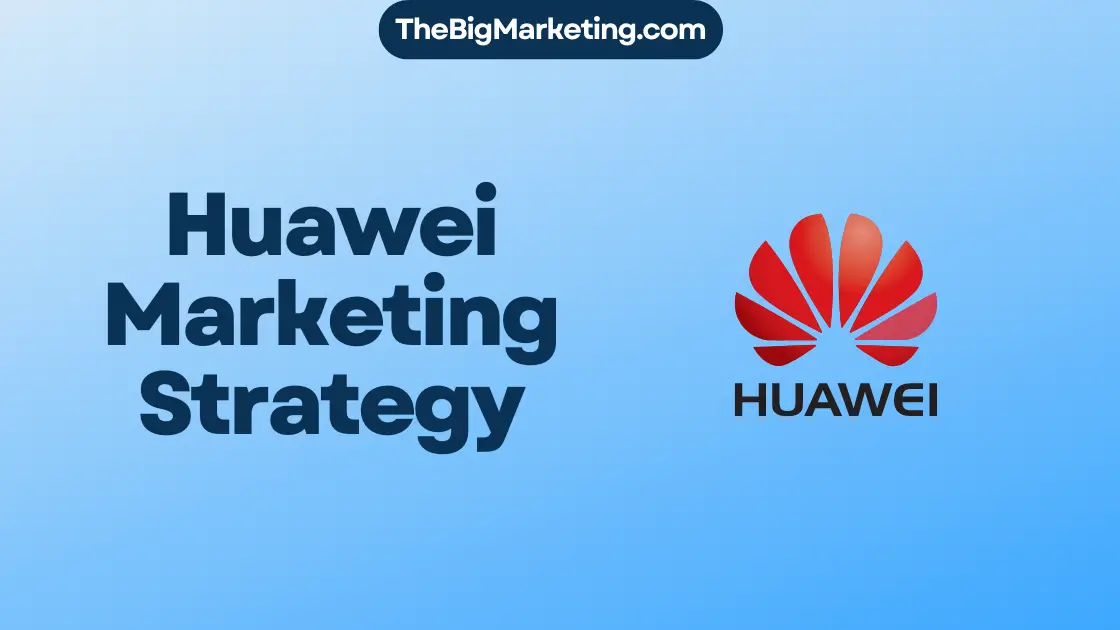Ethical marketing is a fundamental practice that involves promoting products and services honestly and in good faith, while also considering the social and environmental impact. It is guided by principles such as honesty, respect for individual rights, responsibility, and fairness. Ethical marketing practices are essential for building trust and credibility with consumers.
Key Takeaways:
- Ethical marketing promotes products and services honestly and responsibly.
- It considers the social and environmental impact of marketing efforts.
- Principles of ethical marketing include honesty, respect, responsibility, and fairness.
- Examples of ethical marketing can be both positive and negative.
- Ethical marketing builds trust, enhances brand reputation, and contributes to long-term business success.
The Importance of Ethical Marketing
Ethical marketing is a fundamental aspect of modern business strategies. It plays a vital role in building trust and loyalty with consumers, enhancing brand reputation, and ultimately driving business success. Today, consumers place great importance on ethical behavior from companies and actively seek out brands that prioritize ethical marketing practices.
Building trust with consumers is crucial for any business, regardless of industry or size. Ethical marketing establishes a strong foundation of trust by demonstrating a commitment to fairness, honesty, and responsibility. When consumers trust a brand, they are more likely to develop a long-term relationship and become loyal customers.
A positive brand reputation is a valuable asset in today’s competitive market. Ethical marketing contributes to building a favorable brand image by adhering to high ethical standards. When consumers perceive a brand as ethical, they are more likely to associate it with positive characteristics such as integrity, authenticity, and social responsibility.
This positive brand reputation sets a brand apart from its competitors and gives it a competitive edge. Ethical marketing helps differentiate a company by showcasing its commitment to values and principles that align with consumers’ beliefs and expectations. In a crowded marketplace, this differentiation can be the deciding factor that attracts and retains customers.
Furthermore, ethical marketing is not just a short-term strategy but also a key driver of long-term business success. By prioritizing ethical marketing practices, companies build strong relationships with consumers based on trust and mutual respect. This leads to increased customer loyalty, repeat purchases, and positive word-of-mouth recommendations.
Ultimately, ethical marketing aligns business goals with societal needs and expectations. It proves that profits and responsible practices can coexist and even reinforce each other. Ethical marketing creates a win-win situation that benefits both companies and consumers, contributed to the overall growth and sustainability of businesses.
The Impact of Ethical Marketing on Business Success
The impact of ethical marketing extends beyond immediate financial gains. It fosters an environment of trust, credibility, and positive brand associations. Here are some key ways ethical marketing contributes to the long-term success of a business:
| Benefits of Ethical Marketing | Description |
|---|---|
| 1. Building Trust | Ethical marketing helps build trust with consumers, fostering loyal relationships. |
| 2. Enhancing Brand Reputation | Brands that prioritize ethical marketing practices create a positive brand image. |
| 3. Differentiation | Ethical marketing sets a brand apart from its competitors, attracting consumers. |
| 4. Increasing Customer Loyalty | Ethical marketing contributes to long-term customer retention and repeat purchases. |
| 5. Positive Word-of-Mouth Recommendations | Satisfied customers are more likely to recommend an ethical brand to others. |
| 6. Long-Term Business Growth | Ethical marketing builds a foundation for sustained business success and growth. |
Ethical marketing is not just a moral obligation but also a strategic imperative for businesses looking to thrive in today’s conscientious consumer landscape. By prioritizing ethical marketing practices, businesses can build strong relationships, enhance their brand reputation, and ultimately achieve long-term success.
Principles of Ethical Marketing
Ethical marketing is driven by a set of principles that encompass honesty, respect for individual rights, responsibility, fairness, transparency, and citizenship. These principles serve as a guiding compass for companies committed to ethical marketing practices, shaping their strategies and interactions with consumers.
Honesty
Honesty lies at the core of ethical marketing. It involves telling the truth and avoiding deception in all marketing communications. By being transparent and providing accurate information, companies can establish trust with consumers and foster long-term relationships.
Respect for Individual Rights
Respect for individual rights is another crucial principle of ethical marketing. This encompasses respecting consumer privacy, avoiding discrimination, and being transparent about data collection and usage. By safeguarding individuals’ rights, companies demonstrate their commitment to fairness and trustworthiness.
Responsibility
Responsibility in ethical marketing means ensuring that marketing efforts do not harm individuals or society at large. Companies bear the responsibility of promoting products and services that meet quality and safety standards. By prioritizing responsible practices, businesses contribute to the well-being of consumers and the greater community.
Fairness
Fairness is a fundamental principle of ethical marketing. It involves treating all individuals, including consumers, employees, and stakeholders, with fairness and equity. By avoiding exploitative practices, companies demonstrate their commitment to creating a level playing field and fostering mutually beneficial relationships.
Transparency
Transparency is a key principle underlying ethical marketing. It entails effective communication, openness, and responsiveness in all marketing interactions. Companies showcase transparency by providing clear, accurate information, addressing consumer concerns, and being accountable for their actions.
Citizenship
Citizenship in the context of ethical marketing involves contributing positively to the larger community and promoting fair trade. Ethical marketing goes beyond profit-making and considers the social, environmental, and economic impacts of business practices. By embracing citizenship, companies strive to create a better world and align their marketing efforts with the values of sustainability and social responsibility.
| Principle | Description |
|---|---|
| Honesty | Telling the truth and avoiding deception in marketing communications. |
| Respect for Individual Rights | Respecting privacy, avoiding discrimination, and being transparent about data collection. |
| Responsibility | Ensuring marketing efforts do not harm individuals or society. |
| Fairness | Treating all individuals fairly and avoiding exploitative practices. |
| Transparency | Communicating openly, providing accurate information, and addressing consumer concerns. |
| Citizenship | Contributing to the larger community and promoting fair trade. |
Examples of Ethical Marketing
When it comes to ethical marketing, there are both positive and negative examples that have emerged in various industries. These examples illustrate the importance of practicing ethical marketing principles and the impact it can have on brand reputation and consumer trust. Let’s explore some notable examples:
Volkswagen Emissions Scandal
One infamous example of unethical marketing practices is the Volkswagen emissions scandal. The company manipulated emission test results to make their vehicles appear more environmentally friendly than they actually were. This deceitful marketing tactic not only led to enormous fines and legal consequences for Volkswagen but also shattered consumer trust in the brand.
Tylenol Tampering Incident
In contrast, the Tylenol tampering incident stands as an example of ethical marketing. When Tylenol discovered that its products had been tampered with and posed a risk to consumers, the company took immediate action. Tylenol issued a nationwide recall, redesigned their packaging to ensure tamper-proof safety seals, and communicated openly and transparently with the public. Their ethical response not only protected consumer safety but also reinforced trust in the brand.
Influencer Marketing
In recent years, influencer marketing has gained prominence. However, this advertising strategy has faced criticism due to issues of authenticity and transparency. Some influencers have been accused of promoting products without genuine experience or failing to disclose their paid relationships with brands. These deceptive practices undermine consumer trust and the integrity of influencer marketing as a whole.
Vaping Industry Marketing
The marketing tactics employed by the vaping industry have also come under scrutiny. Critics argue that marketing efforts targeted at young people have contributed to a surge in youth vaping rates. The aggressive and appealing marketing strategies used by some vaping companies highlight the ethical concerns surrounding the promotion of potentially harmful products to vulnerable populations.
Greenwashing
Greenwashing, a practice in which companies make false or misleading environmental claims, is another significant ethical concern in marketing. Some businesses use claims of sustainability or eco-friendliness as a marketing ploy without actually implementing substantial environmental initiatives. This creates a false perception of responsibility and can deceive consumers who genuinely care about supporting environmentally conscious brands.
These examples of ethical and unethical marketing practices emphasize the importance of transparency, honesty, and responsible advertising. By understanding and learning from both positive and negative examples, brands can make more informed decisions and prioritize ethical marketing strategies that build trust, promote consumer well-being, and contribute positively to society.
The Business Impact of Ethical Marketing
Ethical marketing plays a significant role in today’s business landscape. Consumers are increasingly prioritizing brands that demonstrate ethical practices, leading to a notable impact on their preferences, brand loyalty, and the competitive advantage of businesses. Let’s explore the various ways ethical marketing can positively influence companies and drive their long-term success.
Consumer Preferences
Consumer preferences have significantly shifted towards brands that prioritize ethical practices. Today’s consumers are more informed and conscious of the social and environmental impact of their purchasing decisions. They expect companies to uphold certain ethical standards, such as fair trade, sustainable sourcing, and responsible manufacturing processes. By aligning with these preferences, businesses can attract a wider customer base and foster a positive reputation within their target market.
Brand Loyalty
One of the key advantages of ethical marketing is its ability to build strong brand loyalty. When consumers perceive a brand as ethical and socially responsible, they are more likely to develop a deep emotional connection and trust with that brand. This loyalty translates into repeat purchases, positive word-of-mouth recommendations, and an overall higher customer lifetime value. By consistently demonstrating ethical practices, businesses can create a loyal customer base that supports and advocates for their brand.
Competitive Advantage
Engaging in ethical marketing gives businesses a competitive advantage over their competitors who don’t prioritize ethical principles. In a market saturated with similar products or services, a commitment to ethical practices can differentiate a brand and make it stand out. Consumers are more likely to choose a brand that aligns with their values, giving ethically-minded businesses a unique selling proposition. Moreover, an emphasis on ethical marketing can also attract employees who share similar values, contributing to a positive work culture and attracting top talent.
Ethical Marketing in the Digital Age
The rise of digital technology has revolutionized the marketing landscape, presenting both opportunities and challenges for ethical practices. As artificial intelligence (AI) tools and predictive technology become increasingly prevalent, ethical marketers must navigate the ethical implications surrounding consumer data collection and privacy concerns.
Artificial intelligence, which encompasses technologies such as machine learning and natural language processing, allows marketers to analyze vast amounts of consumer data. While this can lead to more personalized and targeted marketing campaigns, it also raises questions about the ethical use of consumer data.
Predictive technology, powered by AI algorithms, enables marketers to anticipate consumer behavior and preferences. However, the use of predictive technology raises concerns about privacy and the potential manipulation of consumer decision-making.
Consumer Data and Privacy
The collection and use of consumer data is a cornerstone of digital marketing. However, ethical marketers must ensure that they obtain appropriate consent from consumers for data collection and use. Transparency in data practices is crucial to maintaining trust between brands and consumers.
Respecting consumer privacy involves implementing secure data storage practices and protecting consumer information from unauthorized access. Marketers must also ensure compliance with relevant data protection laws and regulations.
Ethics in Social Media Marketing
Social media marketing has become an integral part of many brands’ marketing strategies. Ethical practices in social media marketing include ensuring authenticity and transparency in relationships between brands, influencers, and consumers.
Influencer marketing has gained popularity in recent years, but it has also faced criticism for lack of transparency and authenticity. Ethical marketers should work with genuine influencers who align with their brand values and clearly disclose any paid partnerships.
Social media platforms also require ethical use, as the dissemination of false information or engaging in manipulative tactics can harm the trust between brands and consumers.
In conclusion, ethical marketing in the digital age requires responsible and transparent practices. Marketers must navigate the ethical challenges of AI, predictive technology, consumer data, and social media marketing while maintaining consumer trust and complying with regulations. By prioritizing ethical principles, marketers can build stronger relationships with consumers and contribute to a more ethical digital marketing landscape.
Trust and Transparency in Ethical Marketing
Trust and transparency are essential components of ethical marketing. Consumers value brands that prioritize honesty and transparency in their products and practices. By building trust with consumers, brands can establish long-lasting relationships and attract a loyal customer base.
The Power of Building Trust with Consumers
Building trust with consumers is crucial for ethical marketing. Consumers are seeking brands they can rely on and trust to provide accurate and truthful information. Trustworthy brands not only gain customer loyalty but also attract new customers through positive word-of-mouth recommendations.
One way to build trust with consumers is through open and honest communication. Marketers should provide accurate information about their products and services, avoiding any misleading claims or exaggerated promises. By being transparent about their processes and practices, brands can demonstrate their commitment to ethical marketing principles.
Responding to constructive criticism is also an important aspect of building trust. Honest feedback from consumers allows brands to identify areas for improvement and make necessary changes. By addressing concerns and taking action, brands can show their dedication to serving consumers ethically and responsibly.
The Role of Transparency in Marketing
Transparency is a key element of ethical marketing. It involves providing consumers with clear and comprehensive information about the products they are purchasing. Transparent marketing practices foster an environment of trust and create a level of transparency that consumers appreciate.
- Accurate Product Information: Ethical marketers provide accurate details about their products, including ingredients, manufacturing processes, and any potential risks or side effects. Transparent product labeling and packaging help consumers make informed decisions.
- Clear Pricing and Promotions: Customers appreciate transparent pricing and promotions. Brands that clearly communicate the full cost of a product or service without hidden fees or deceptive practices build trust with consumers.
- Disclosure of Partnerships and Sponsorships: In influencer marketing and partnerships with third parties, brands should disclose any financial or material connections to ensure transparency.
Honest Communication as a Foundation for Trust
Honest communication is the cornerstone of trust in ethical marketing. Brands should communicate openly and authentically with their consumers, fostering a genuine connection. By being honest about their actions, intentions, and values, brands can establish themselves as trustworthy and credible in the eyes of their consumers.
Trust is not built overnight, but through consistent and honest communication, brands can strengthen their relationships with consumers over time. By responding to customer inquiries promptly and respectfully, addressing concerns, and taking appropriate actions, brands demonstrate their commitment to ethical marketing practices and customer satisfaction.
Trust and transparency are at the core of ethical marketing. Brands that prioritize honesty, openness, and authentic communication are more likely to earn the trust and loyalty of consumers. By building trust with consumers and being transparent in their marketing practices, brands not only establish a positive reputation but also create lasting relationships that contribute to long-term success.
Ethical Marketing and Consumer Research
Consumer research plays a significant role in ethical marketing, ensuring that businesses gather insights responsibly and transparently. Marketers conducting research must adhere to ethical principles, such as obtaining informed consent, conducting unbiased studies, and prioritizing the protection of consumer data.
Informed Consent
Obtaining informed consent from research participants is crucial to ethical consumer research. Marketers should clearly communicate the purpose of data collection, how the information will be used, and any potential risks or benefits involved. Informed consent ensures that participants make a voluntary and informed decision to engage in the research process.
Unbiased Research
Unbiased research is essential for ethical consumer research. Marketers must ensure that the research process is free from any intentional mistreatment or misrepresentation of individuals or groups based on demographics. Unbiased research practices contribute to the validity and reliability of the findings, fostering trust in the research outcomes.
Data Collection and Privacy Protection
Data collection is an integral part of consumer research, but it must be conducted ethically and responsibly. Marketers should prioritize the protection of consumer data by implementing robust security measures and complying with relevant privacy regulations. Additionally, providing opt-out options and respecting participants’ privacy preferences reinforces the value of privacy in ethical consumer research.
The Role of Ethical Consumer Research
| Ethical Consumer Research | Benefits |
|---|---|
| 1. Informed Consent | Establishes trust and transparency with participants |
| 2. Unbiased Research | Produces reliable and accurate insights |
| 3. Data Protection | Respects participants’ privacy rights |
| 4. Enhanced Reputation | Positions the business as socially responsible |
Ethical consumer research contributes to the overall reputation of a business by showcasing its commitment to responsible practices. Consumers are more likely to trust and engage with brands that prioritize ethical consumer research, leading to increased loyalty and brand reputation.
By conducting research with informed consent, maintaining unbiased methodologies, and protecting consumer data, marketers can ensure that their consumer research aligns with ethical standards, benefiting both businesses and consumers.
The Role of Ethical Marketing in Brand Reputation
Ethical marketing plays a significant role in shaping a brand’s reputation. By practicing ethical marketing, companies can create a positive brand image based on honesty, transparency, and responsible practices. This positive reputation enhances credibility with consumers and can lead to increased customer loyalty. Brands that prioritize ethical marketing are more likely to be trusted and recommended by consumers.
When businesses engage in ethical marketing practices, they demonstrate their commitment to social responsibility and consumer well-being. This resonates with consumers who value brands that align with their values. By promoting positive brand image through ethical marketing, companies can establish themselves as trustworthy and reliable partners in the eyes of their target audience.
Credibility is another key factor in brand reputation. Ethical marketing fosters credibility by ensuring that companies deliver on their promises and live up to consumer expectations. By consistently demonstrating ethical behavior, brands build a strong foundation of trust with their customers.
Moreover, ethical marketing plays a vital role in fostering customer loyalty. Consumers are more likely to remain loyal to a brand that they trust and perceive as ethical. When companies prioritize ethical marketing, they create an emotional connection with consumers, leading to long-term customer loyalty and advocacy.
Ethical marketing goes beyond short-term gains and focuses on building strong, sustainable relationships with consumers. By conducting business with integrity, companies not only enhance their brand reputation but also strengthen their standing in the market. In an era where consumers are increasingly conscious of their purchasing decisions, ethical marketing is a powerful tool for businesses to differentiate themselves and gain a competitive edge.
Overall, ethical marketing plays a crucial role in shaping a brand’s reputation by establishing a positive brand image, enhancing credibility, and fostering customer loyalty. By prioritizing ethical marketing practices, companies can build enduring relationships with consumers that contribute to their long-term success.
| Benefits of Ethical Marketing | Examples |
|---|---|
| Positive brand image | Volkswagen emissions scandal |
| Credibility | Tylenol tampering incident |
| Loyalty | Influencer marketing |
Ethical Marketing Challenges and Responsiveness
Ethical marketing is not without its challenges. One of the key challenges faced is consumer skepticism. Many consumers have grown wary of marketing tactics and are increasingly skeptical of companies’ claims and intentions. This skepticism stems from past experiences of misleading advertising, false promises, and unethical practices.
Another challenge for ethical marketers is the demand for social responsibility. Consumers are now more concerned about the impact that businesses have on society and the environment. They expect companies to be transparent about their social and environmental practices and to take responsibility for their actions. This requires marketers to not only promote ethical products and services but also to communicate the values and social responsibility initiatives of their organizations.
Legal compliance is also a significant challenge in ethical marketing. Marketers must ensure that their campaigns and strategies comply with all relevant laws and regulations. This includes adhering to advertising standards, protecting consumer privacy, and avoiding deceptive or misleading practices. Failure to comply with legal requirements can result in fines, legal disputes, and reputational damage.
In order to tackle these challenges, ethical marketers must continuously evaluate their practices and adapt to changing consumer expectations. They must be responsive to consumer concerns and be transparent in their communications. By integrating social responsibility into their marketing strategies, companies can build trust and credibility with consumers, enhancing their reputation and long-term success.
The Importance of Consumer Trust and Responsiveness
Consumer trust is vital for the success of ethical marketing. When consumers trust a brand, they are more likely to engage with its marketing efforts, make purchases, and become loyal customers. Trust also leads to positive word-of-mouth recommendations, which can amplify the reach and impact of a company’s marketing campaigns.
Building trust requires open and honest communication with consumers. Marketers must provide accurate information about products and services, be transparent about their marketing practices, and promptly address any concerns or feedback from consumers. By actively listening and responding to customers, marketers can build stronger relationships and create a more positive perception of their brand.
Responsiveness is another key factor in ethical marketing. Marketers must be proactive in identifying and addressing consumer needs and concerns. They should regularly seek feedback from consumers and use it to improve their products, services, and marketing strategies. By being responsive to consumer feedback, companies can show that they value their customers and are committed to meeting their needs.
By overcoming ethical marketing challenges and prioritizing consumer trust and responsiveness, companies can establish themselves as ethical leaders in their industry. This not only differentiates them from competitors but also contributes to long-term success and sustainable growth.
| Consumer skepticism | Social responsibility | Legal compliance | |
|---|---|---|---|
| Challenges | Consumers are increasingly skeptical of marketing claims and intentions. | Consumers expect companies to be socially responsible and transparent. | Marketers must comply with relevant laws and regulations. |
| Importance | Building consumer trust and overcoming skepticism. | Gaining consumer loyalty and enhancing brand reputation. | Avoiding legal consequences and reputational damage. |
| Responsiveness | Adapting to consumer expectations and addressing concerns. | Integrating social responsibility into marketing strategies. | Regularly evaluating and adapting marketing practices. |
Conclusion
Ethical marketing is the cornerstone of building trust, credibility, and achieving long-term success in business. By prioritizing values such as honesty, responsibility, fairness, and transparency, brands can establish robust relationships with consumers and distinguish themselves from competitors. The impact of ethical marketing goes beyond just brand reputation; it fosters consumer loyalty and drives overall business performance.
Consumers today value brands that demonstrate ethical practices, and they are more likely to support those that align with their values. By adhering to ethical marketing principles, businesses can cultivate trust and credibility with their audience. This trust leads to increased customer retention, positive word-of-mouth recommendations, and ultimately, sustainable growth.
As technology advances and consumer expectations evolve, marketers must adapt their strategies to maintain ethical standards and meet consumer demands. This includes navigating challenges such as privacy concerns, responsible data collection, and promoting honest and transparent communication. By continuously prioritizing ethical marketing practices, businesses can forge lasting connections with consumers, ensuring their long-term success in an ever-changing marketplace.




